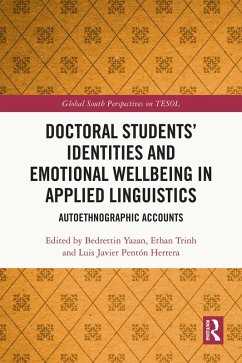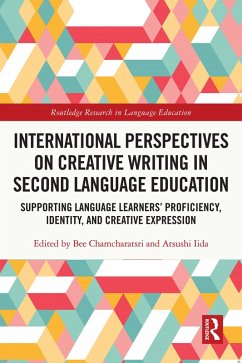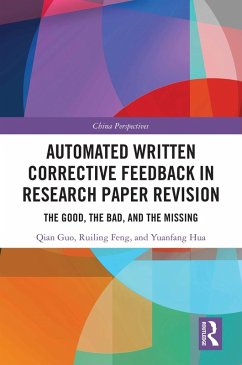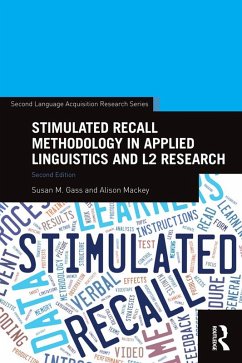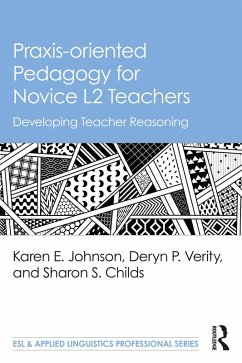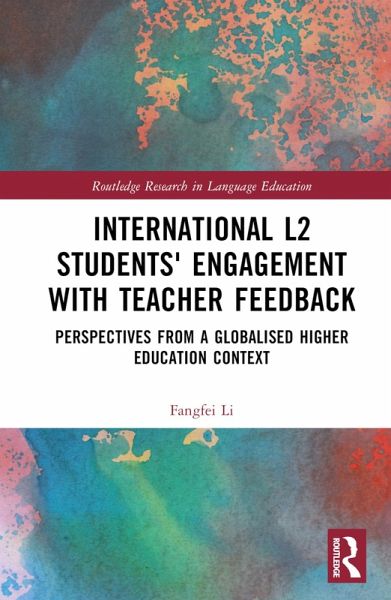
International L2 Students' Engagement with Teacher Feedback (eBook, ePUB)
Perspectives from a Globalised Higher Education Context
Versandkostenfrei!
Sofort per Download lieferbar
42,95 €
inkl. MwSt.
Weitere Ausgaben:

PAYBACK Punkte
21 °P sammeln!
Fangfei Li investigates L2 international students' engagement with teacher feedback in the UK higher education system. She focuses on Chinese students studying at a UK university and explores their engagement with the feedback from local teachers and the factors which influence their participation and engagement.Offering numerous illustrative examples of how students transformed their understanding of feedback into revision practices, Li explores how the students' feedback literacy is identified. The rich qualitative interview and textual data presented in this book highlight the situated and ...
Fangfei Li investigates L2 international students' engagement with teacher feedback in the UK higher education system. She focuses on Chinese students studying at a UK university and explores their engagement with the feedback from local teachers and the factors which influence their participation and engagement.
Offering numerous illustrative examples of how students transformed their understanding of feedback into revision practices, Li explores how the students' feedback literacy is identified. The rich qualitative interview and textual data presented in this book highlight the situated and multifaceted nature of student feedback literacy. The data also demonstrate the necessity for local tutors to be fully aware of the challenges for international students in engaging with discipline-bounded feedback, and how to adjust instruction and feedback practice accordingly, to foster their students' success in higher education.
This book is essential for researchers and research students in education, applied linguistics, especially feedback fields, and English for academic purposes (EAP) educators and university lecturers who work with international students and use feedback as a teaching device.
Offering numerous illustrative examples of how students transformed their understanding of feedback into revision practices, Li explores how the students' feedback literacy is identified. The rich qualitative interview and textual data presented in this book highlight the situated and multifaceted nature of student feedback literacy. The data also demonstrate the necessity for local tutors to be fully aware of the challenges for international students in engaging with discipline-bounded feedback, and how to adjust instruction and feedback practice accordingly, to foster their students' success in higher education.
This book is essential for researchers and research students in education, applied linguistics, especially feedback fields, and English for academic purposes (EAP) educators and university lecturers who work with international students and use feedback as a teaching device.
Dieser Download kann aus rechtlichen Gründen nur mit Rechnungsadresse in A, B, BG, CY, CZ, D, DK, EW, E, FIN, F, GR, HR, H, IRL, I, LT, L, LR, M, NL, PL, P, R, S, SLO, SK ausgeliefert werden.





